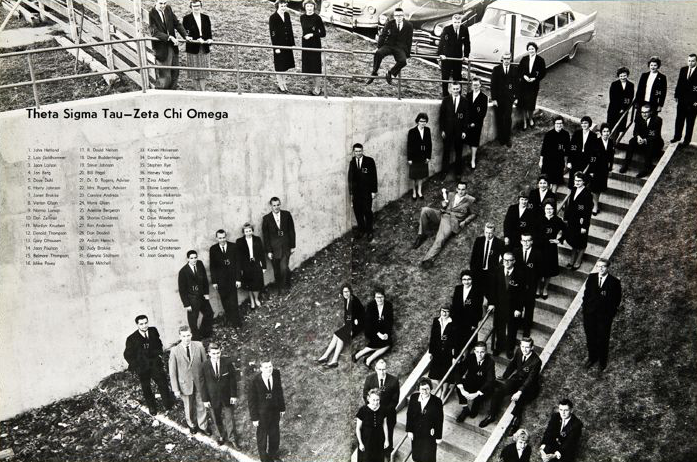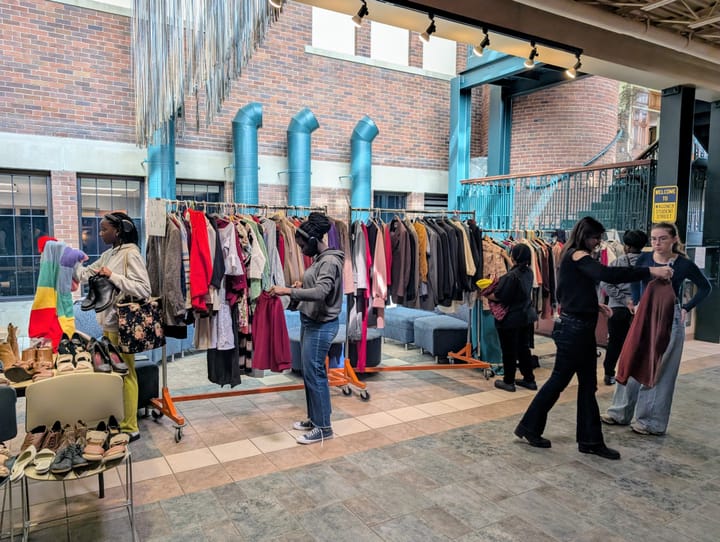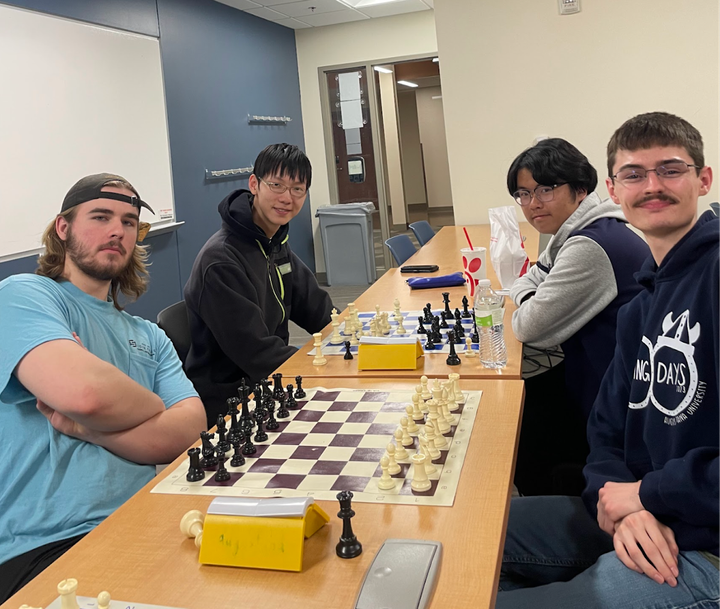Mikkelsen furthers open educational resource initiative

While most Augustana students were calculating their textbook expenses for the semester, senior Anne Sprecher received unexpected news from her professor: One of her required books would cost absolutely nothing.
She's one of nearly 800 students experiencing the benefits of Ole's Open Text Initiative, a program aimed at making textbooks more accessible across campus.
"It definitely put a smile on my face," Sprecher said. "Trying to compare prices, evaluate shipping times, and even wondering if we'll use the entirety of the textbooks can be stressful."
The program, formally established in 2022, addresses what Digital Initiatives Librarian Kelly Thompson describes as a fundamental educational barrier.
“Students cannot learn from books they cannot afford," Thompson said.
According to a survey cited by Thompson, rising textbook costs have forced students to avoid purchasing required materials, take fewer courses, and even skip registering for classes with expensive books — all of which directly impact academic performance.
"For fall 2024 alone, the library invested over $2,500 to provide free textbooks for 32 courses with 789 student enrollments," Lisa Brunick, public services librarian, said. "The potential savings for students exceeded $29,500."
The initiative works through two approaches: identifying open educational resources (OER) available online and purchasing unlimited-access e-books that meet specific criteria through the library. To qualify for library purchase, e-books must be reasonably priced, available from publishers for library acquisition and licensed for unlimited campus-wide access.
When either type of resource is identified, librarians contact professors to inform them of the free alternative, allowing faculty to share this information with students and to update their course materials list accordingly.
For interim and spring 2025, the library invested over $2,200 to purchase books for 23 courses with 418 students enrolled, generating potential savings exceeding $12,000. Additionally, 27 courses with 425 students benefited from e-books purchased in previous semesters, multiplying the initiative's impact as resources continue to serve new cohorts of students.
Arminta Fox, assistant professor of religion, took part in the initiative for two of her courses. According to Fox, 59 students in her RELI 110 course could have collectively saved approximately $2,301 this semester, with another $702 in potential savings for 18 students in her CIVT 204 course on Freedom and Mass Incarceration.
"I think more students come to class prepared because they've had more opportunity to access the resources," Fox said. "With OER sources, they can access them through their devices, meaning they can read them whenever they get a free moment, wherever they are."
Beyond cost savings, the initiative is changing classroom dynamics. Many open educational resources come with Creative Commons licenses that allow professors to customize materials, which avoids the constraints of commercial publishers. Materials with Creative Commons licensing give faculty freedom to modify, update and customize content to ensure that it remains current and applicable to their teaching.
For students juggling multiple responsibilities, the practical benefits extend beyond financial relief. Course materials that are fully open or provided by the library reduce accessibility barriers for students: They don’t have to undergo complicated login procedures, shipping delays or subscription issues.
According to Thompson, the School of Education leads the way in its adoption of OER material; the School of Business and the School of Health Professions, as well as the anthropology, economics and biology departments, are following closely behind.
Associate professor of psychology Lindsay Howard's decision to adopt an open textbook for her senior seminar class reflects growing faculty enthusiasm.
"Lisa Brunick told me about the option, and why not take advantage of a free text for my students?" Howard said.
Implementing the initiative hasn't been without challenges. Despite the advantages of this program, prioritizing open educational resources remains challenging as professors balance numerous responsibilities. The library organizes regular events through Augustana University's Center for Excellence in Teaching & Scholarship and includes inquiries about open resources during syllabus submission periods, recognizing that consistent checking is required to stay current with available options.
Librarians running OER initiatives face similar challenges, including communicating about the benefits of OER, selling the switch to professors and finding quality information on various subjects.
Despite these challenges, the program continues to gain momentum with administrative support embedded in Viking Bold, Augustana's strategic plan.
"I feel like we are making a lot of progress when it comes to awareness on campus — for professors and students," Thompson said. "Next academic year, I'd like to work on gathering stories of the impact of OER from students' perspective and maybe starting up a way to recognize faculty who are OER champions on campus."
Students and faculty interested in joining this educational revolution can visit the initiative's website or contact their liaison librarian directly.
For students like Sprecher, the initiative represents Augustana's commitment to innovation and accessibility in an era of rising educational costs.
"I would prefer to see more courses at Augustana adopt open educational resources because it's a way to save money for students and ensures that ethical practices are being followed," Sprecher said.



